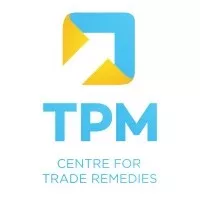- within Media, Telecoms, IT and Entertainment topic(s)
In a move to protect its economy and domestic industries from pervasive subsidization and idle overcapacities in China, the Government of Canada announced imposition of 100% surtax on Chinese imports of electric vehicles with effect from 1st October 2024 and 25% on imports of steel and aluminum products with effect from 15th October 2024. The measures, referred to as China Surtax Order 2024, were announced on 26th August 2024 pursuant to a 30 days consultation attended by various stakeholders. The purpose of the Order was to protect the domestic producers from the undue advantage enjoyed by the Chinese producers due to various subsidies received by the Chinese government which are immensely threatening the local producers. Such strong support from the Government had enabled Chinese producers to undertake huge investments and increase their production capacities for capturing the global demand. As a result, China became the fourth largest producer of steel catering to approximately 59% of the global demand and one of the biggest exporters of electric vehicles, posing a major to other global producers. The Chinese imports adversely impacted the fair market conditions in Canada, making it difficult for local producers compete and to keep their investments viable.
Pursuant to the measures, China requested a consultation with the Government of Canada claiming that such measures were discriminatory, protectionist and inconsistent with the 'Most favoured Nation Treatment' under Article 1.1. 2.1(a) and 2.1(b) of General Agreement on Tariff and Trade, 1947. On 6th September 2024, China approached the Dispute Settlement Body of the World Trade Organisation requesting for a consultation with the Delegation of Canada raising the concerns and addressing major issues. The Chinese Delegate highlighted that the measures imposed were extreme and solely intended to attack imports of Chinese origin over and above the maximum tariff bindings agreed by Canada when it became a member of the WTO. Further, Canada has failed to provide any justification and transparency to the WTO members before implementing such extraordinary measures. On 11th March 2025, China filed an addendum to the request for consultation earlier submitted. The addendum illustrated further issues raised by China on potential surtaxes planned for imposition on various other products including batteries and parts thereof, semiconductors, solar products and critical minerals in 2025-26. Such imposition is planned to be implemented in 2025-26, pursuant to the public consultations held by Canada during 10th September 2024 to 10th October 2024. In response, the Delegation from Canada explained the rationale behind imposition of such measures, highlighting the adverse impact of substantial government support enjoyed by Chinese producers, accumulation of idle capacities in China aimed to capture the global demand and distortion caused in fair market conditions due to such activities. Pursuant to the requests filed by China, a consultation was conducted between the nations on 7th April 2025. However, it did not provide any fruitful resolution to the issues raised.
Therefore, China had approached the Dispute Settlement Body seeking an opportunity to present its contentions in the meeting schedule on 23rd May, 2025. In the request submitted, China detailed its claims that the impositions of surtax are arbitrary and discriminatory, and results in less favourable treatment accorded to China, than other member nations, in violation of provisions under GATT, 1947 and the Canada's Schedule for Concessions and Commitments. It requested the Body to establish a panel to examine and analyse the matter at hand and to resolve it in accordance with the standard terms set out in Article 7.1 of the Rules and Procedures governing the Settlement of Disputes. In the meeting held, the Body heard the statements of both interested parties and has agreed to revert to the matter on the request of a member.
The content of this article is intended to provide a general guide to the subject matter. Specialist advice should be sought about your specific circumstances.


